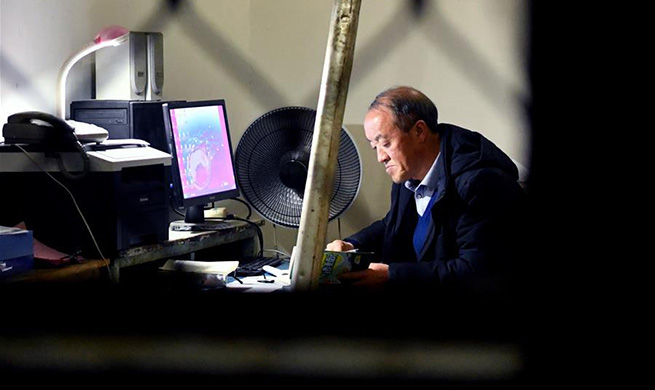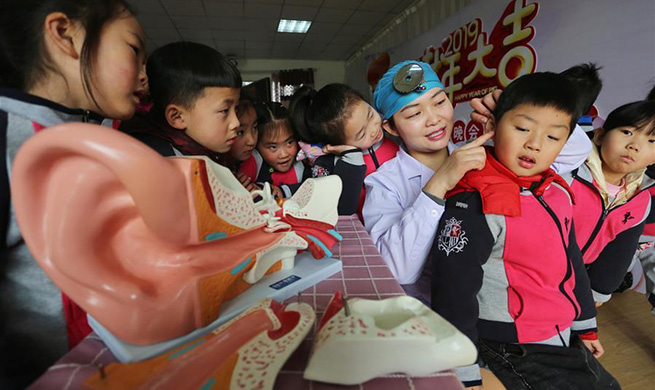UNITED NATIONS, March 1 (Xinhua) -- The United Nations International Children's Emergency Fund (UNICEF) on Friday warned that global cases of measles are surging to alarmingly high levels.
According to a press release, globally, 98 countries reported more cases of measles in 2018 compared to 2017, and ten countries accounted for more than 74 percent of the total increase.
Ukraine, the Philippines and Brazil saw the largest increases in measles cases from 2017 to 2018. In Ukraine alone, there were 35,120 cases of measles in 2018, and another 24,042 people were infected just in the first two months of 2019. In the Philippines so far this year, there have been 12,736 measles cases and 203 deaths, compared to 15,599 cases in the whole of 2018.
Stephane Dujarric, spokesperson for the UN secretary-general, said in a briefing on Friday that measles is a highly contagious viral disease which remains an important cause of death among young children globally, despite the availability of safe, effective and inexpensive vaccines.
According to UNICEF's press release, the contagiousness of measles is even higher than Ebola, tuberculosis or influenza. The virus can be contracted by someone up to two hours after an infected person has left a room. It spreads through air and infects the respiratory tract, potentially killing malnourished children or babies too young to be vaccinated. Once infected, there is no specific treatment for measles, so vaccination is a life-saving tool for children.
Recently, the United States has seen outbreaks in the states of New York and Washington. Local health departments urged parents to get their children vaccinated as soon as possible, even earlier than the scheduled age of one.
UNICEF said that poor health infrastructure, civil strife, low community awareness, complacency and vaccine hesitancy in some cases have led to these outbreaks in both developed and developing countries.
Henrietta Fore, UNICEF's executive director, said that almost all of these cases are preventable, and children are getting infected even in places where there is simply no excuse.
"Measles may be the disease, but, all too often, the real infection is misinformation, mistrust and complacency. We must do more to accurately inform every parent, to help us safely vaccinate every child," said Fore.

















